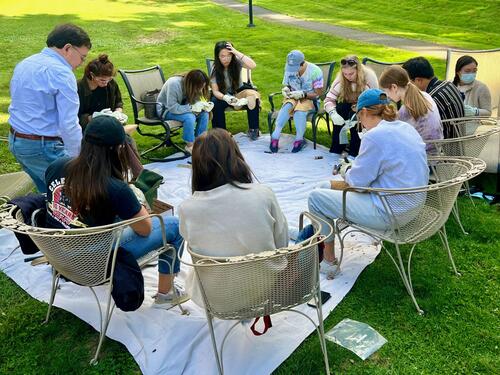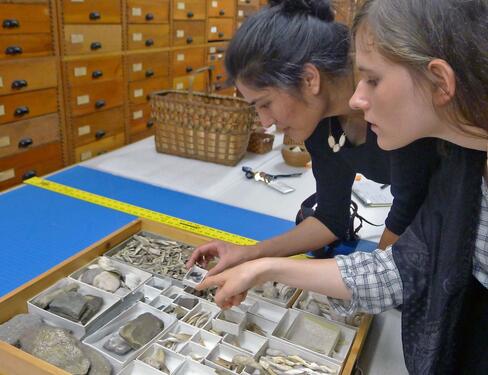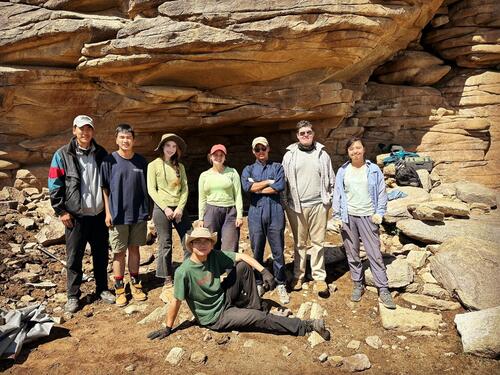The Council on Archaeological Studies believes that archaeology is a mingling of science, theory, and comparative prehistories and histories and that the best way to teach archaeology is by exposing our students to as many different research problems, fieldwork styles, and geographic regions as possible.
At all academic levels, our students are exposed to the research styles of our contributing departments and at the same time receive a solid grounding in theory and analytical sciences common to all. We are fortunate to attract some of the brightest minds in the future of the field yet maintain an atmosphere wherein students receive personal attention.
Archaeological Studies offers undergraduate and M.A. degrees, and it is affiliated with the Department of Anthropology’s Ph.D. program in Archaeological Anthropology:


